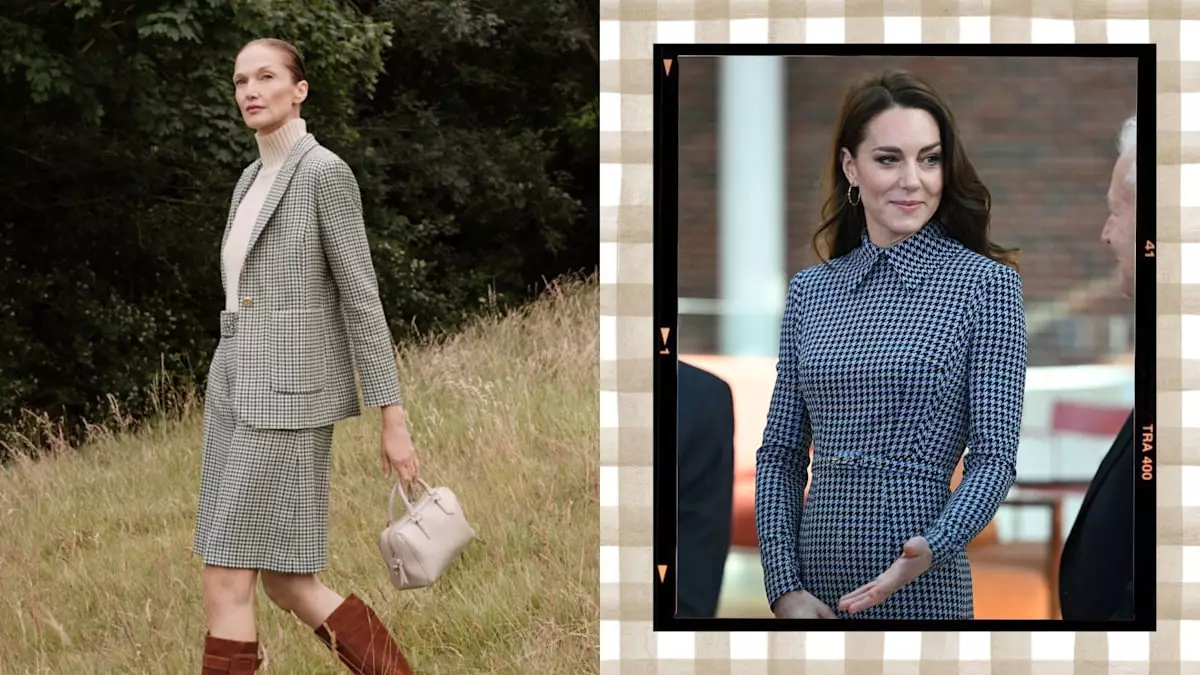In recent years, the fashion industry has faced significant scrutiny over its environmental impact and ethical implications. Fast fashion, characterized by inexpensive, quickly produced clothing, has led to a surge of discarded garments populating landfills, with the sector responsible for nearly 10% of global carbon emissions. These pressing issues have paved the way for innovative alternatives, one of which is the burgeoning trend of rental fashion. L.K.Bennett, a brand beloved by influencers and members of royalty alike, has embraced this movement since 2021 by offering a unique wardrobe rental service known as “LK Borrowed.”
LK Borrowed is not your typical clothing rental service; instead, it operates on a subscription basis. Customers pay a monthly fee of £79, which grants them access to two items at a time, allowing for up to eight rotations each month. This circular fashion model not only provides versatility and variety but also actively seeks to minimize the environmental footprint associated with clothing consumption. By shifting the paradigm from ownership to subscribing, the service posits that individuals can enjoy high-quality, trend-setting clothing without the guilt typically associated with fast fashion purchases.
One of the defining characteristics of rental fashion is its alignment with the principles of sustainable living. By encouraging consumers to opt for rental over purchase, brands like L.K.Bennett contribute to reducing waste while promoting a more considered approach to wardrobe choices. Subscribers can also enjoy added benefits, such as the option to purchase rented items at a discount, making it an attractive choice for fashion enthusiasts who wish to keep their collections fresh without overspending.
For many, embracing a rental fashion model requires a shift in mindset. The allure of constantly updating one’s wardrobe can exacerbate impulsive buying habits, which usually contribute to overconsumption. However, rental fashion allows individuals to comfortably navigate their clothing needs while adhering to a more sustainable lifestyle. This method advocates for a focused approach where each garment is considered not just for its aesthetic appeal, but also its lifecycle and environmental burden.
My personal experience with clothing has informed my perspective on this concept. After making a vow to reject fast fashion in favor of second-hand or sustainably-made attire, I have become acutely aware of my buying habits. Previously, I found myself spending over £100 on clothing monthly without a second thought. Now, with a mindset that prioritizes quality over quantity, my spending has plummeted. With the subscription model of LK Borrowed, the value proposition becomes clear; for £79 a month, eight fashionable items will circulate through my personal wardrobe—an appealing alternative to the potentially hefty price tag of buying new clothes.
Financially, the rental service offers compelling advantages. For a yearly investment of approximately £948, subscribers can dip into a treasure trove of fashionable options. Comparatively, this cost is more palatable than numerous expenses we often accept without question—like a gym membership or a smartphone plan. What’s more, the ability to experiment with new styles before deciding to purchase adds another layer of sustainability to one’s wardrobe. This approach fosters a mindset shift: rather than collecting garments, subscribers curate a conscious collection.
Moreover, the societal shift towards sustainability is becoming increasingly evident. With young consumers advocating for ethically sourced products, brands that offer rental solutions are more likely to win consumer loyalty. The fashion landscape is evolving, and sustainability is no longer just a buzzword; it is a necessity for the future of fashion.
As we continue to grapple with issues of waste and environmental responsibility, rental fashion emerges as a proactive response to the challenges presented by fast fashion. Programs like LK Borrowed not only provide an innovative solution for those seeking to refresh their wardrobes sustainably but also encourage a more thoughtful approach to consumption. By investing in rental models, consumers can enjoy premium style without contributing to the cycle of wasteful overproduction that has plagued the fashion industry for decades. Embracing this trend allows us to make a statement not just about style, but about our commitment to a more sustainable future.

